Niall Horan is just getting started.
From his days as a boy bander (ever heard of One Direction?), to branching out as a solo artist in 2016, to now leading a team of hopeful musicians as a coach on NBC’s The Voice while gearing up to release his third album, Horan has experienced more in his career than most musicians could ever dream of. Now 13 years in, he’s hitting a new stride—and leading the show all on his own. “As I grow up, I understand myself as an artist more and more,” he told VMAN last month. “I’m getting to that place now where I know what I’m good at, and I know what sounds good on me.”
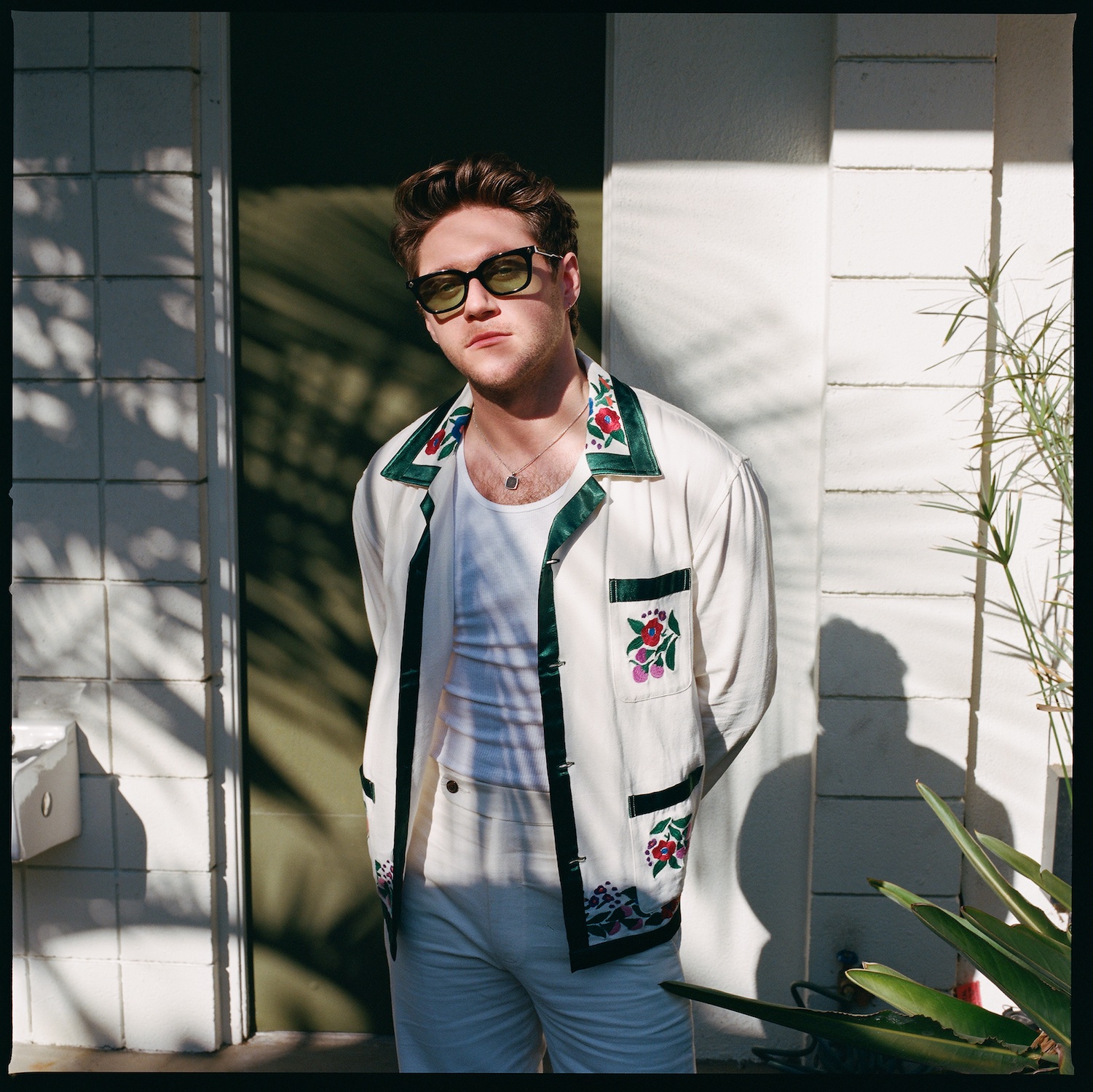
Niall Horan | Photographed by Zackery Michael, Styled by Cameron Quittner
Horan has had plenty of time to play around with his sound. His second album, Heartbreak Weather—which was an experimental foray into heartbreak pop and a solid departure from his folksy 2017 debut, Flicker—was released in March 2020, just as the world slowed to a halt for the pandemic. Instead of feeling sorry about the timing, Horan took his sudden stretch of free time and got to work on album number three, The Show, which comes out on June 9. In fact, the major source of inspiration for The Show came to Horan shortly after Heartbreak Weather’s release, when an Instagram Live with his fans caused him to rethink a concept he’d already written. “I looked back and saw that ‘the show’ was something I’d had written down for a long time, but I never really knew what that meant until we were in the pandemic,” he explained. “And then it was clear to me that life is like a show. That’s what it is: it’s ups and downs, goods and bads.”
In many ways, the album reflects that. Horan dances around the joys of being in love and the pains of anxiety and finds his groove throughout the album’s 10 tracks. And as he settles into this new era, he feels reinvigorated as an artist: “I want to play arenas. I want to play packed shows every night. And I want to work my ass off to make sure that I get there.”
VMAN sat down with Horan to talk about the making of ‘The Show’, and his new singles “Meltdown” and “Heaven.”
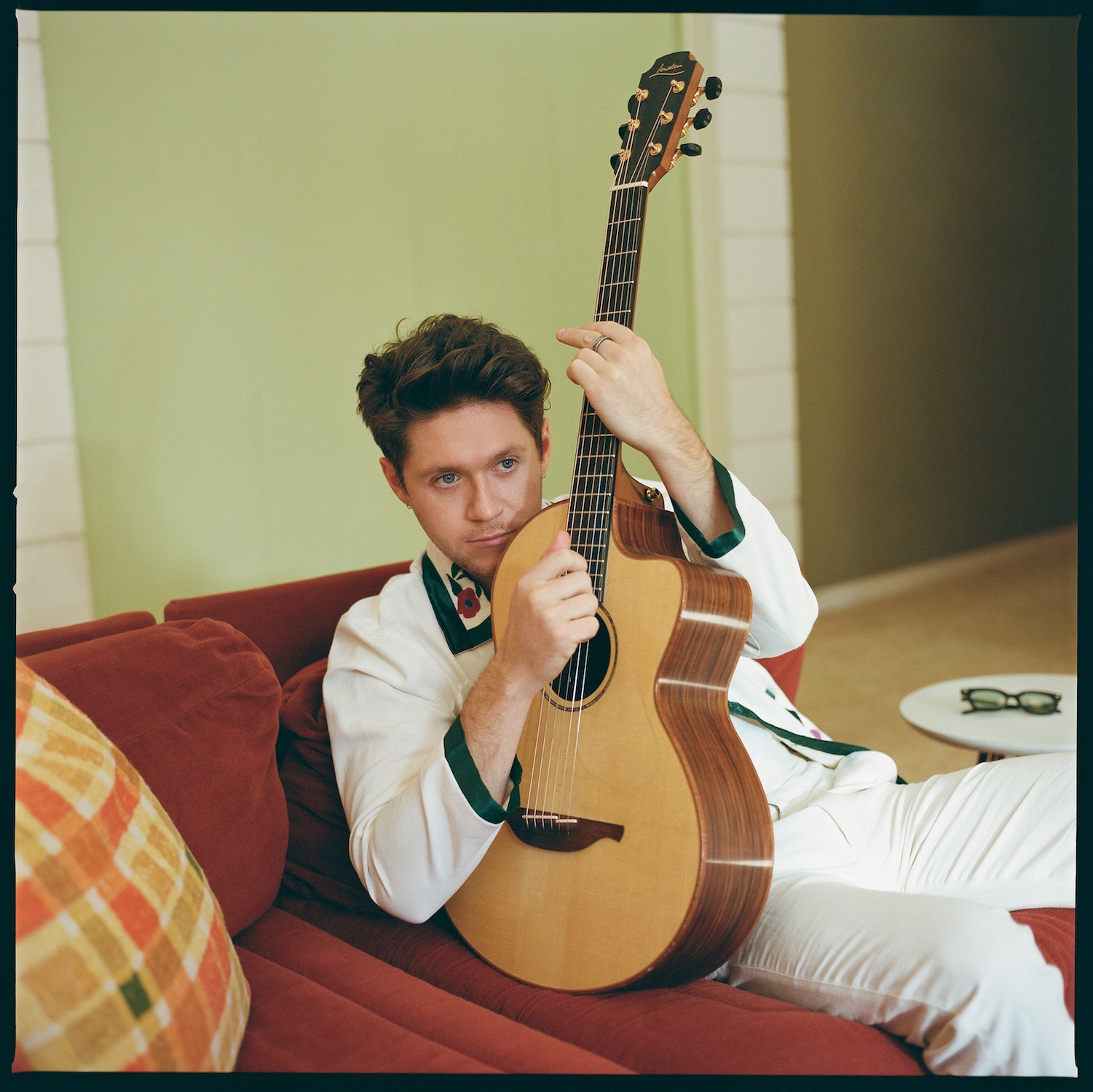
Niall Horan | Photographed by Zackery Michael, Styled by Cameron Quittner
VMAN: Congrats on the second single, “Meltdown.” You also have your first single, “Heaven,” which is just such a catchy song. When did you write that one, and did you always know that it would be the first single?
Niall Horan: Yeah, to be honest. When we first did it, I was like, “God, this is it. It’s going to be tough to beat this one.” I wrote it in June or July of last year in Joshua Tree with a few friends of mine. I felt like I’d been missing something like that in the record, and I wanted to write that concept, so I just went for it and it kind of just popped out. I’d been singing the chorus melody for a couple of days, or at least the first couple of lines of it, and I wasn’t really sure what the hell it was until one of the guys started playing the chords, and I was like, “I know what this is. I’m gonna sing over that.” And then the concept really fell into place then afterwards.
VM: Is that pretty typical of your songwriting process?
NH: I mean, there’s one song in the record that I wrote in under an hour, and it was like, the words just came flying out. I just knew what the concept was going to sound like, if you know what I mean. But there are other times, like, I had this piano line forever for “Never Grow Up,” but it was just about finding what the song meant conceptually, and what lyrics go with that. Most of the time, I like to have a good idea of what I’m going to say, so I write a story out. If it’s a dark song, it’s probably going to be a ballad. But sometimes, it’s the opposite. Like, there’s “Meltdown,” that’s 170 BPM, very up-tempo, but it’s actually about anxiety.
VM: Every song on the album feels really unguarded, if that’s the right word for it. How do you let yourself get into that headspace to be so introspective and vulnerable when you’re writing? I can’t imagine it’s easy.
NH: It used to be really hard for me to do that. You just have to do it in a way where people understand what you’re saying, instead of being so introspective that you’re writing every little detail of your life, and people are like, “what are you even talking about.” So you want to relate to everyone, but it can be tough to get yourself to that point. I used to worry about being asked about stuff in interviews…I thought about writing about certain things and just knowing I was going to be asked about that forever.
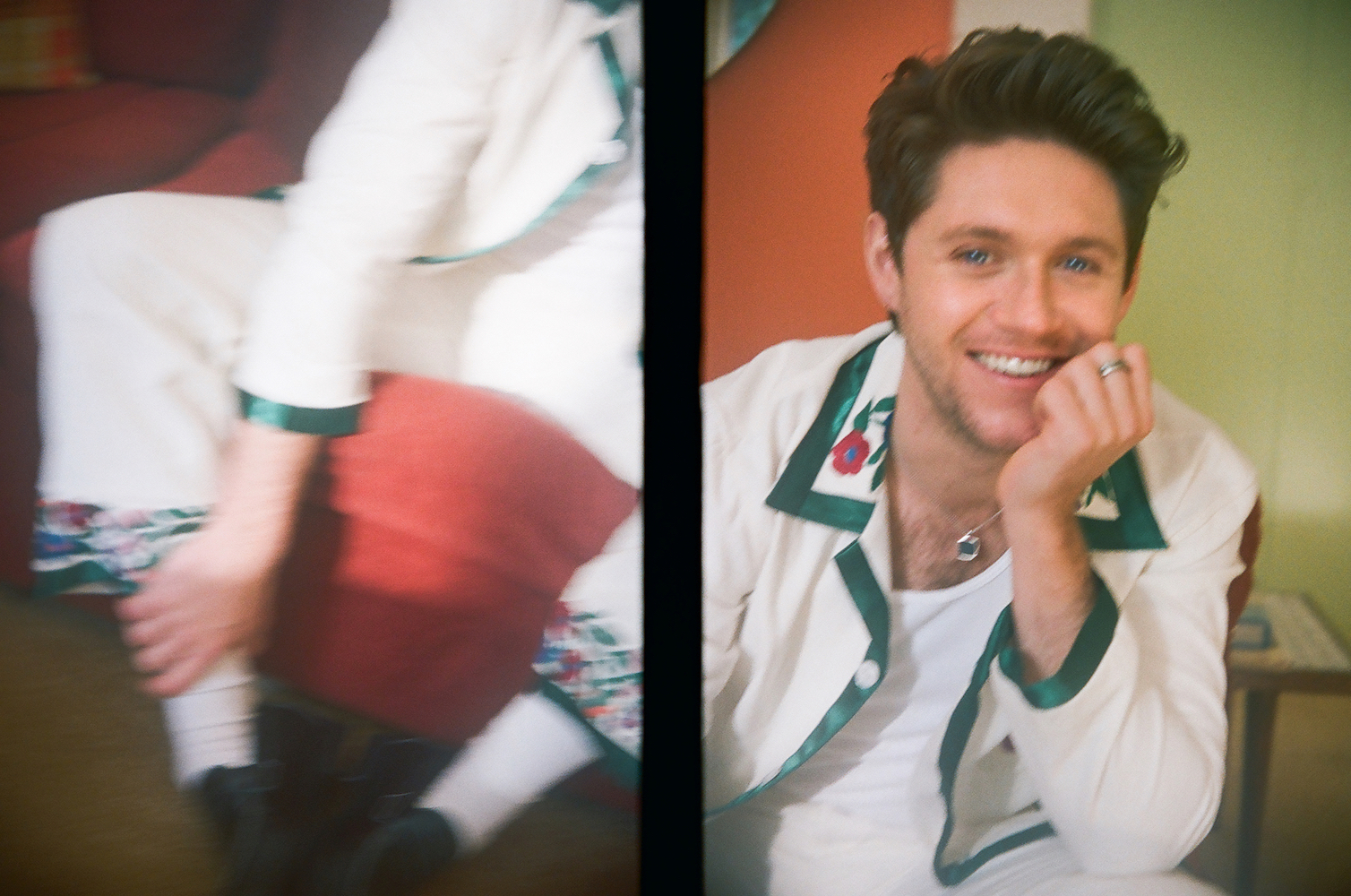
Niall Horan | Photographed by Zackery Michael, Styled by Cameron Quittner
VM: Yeah, hard to kind of walk that line I guess. Would you say music has always been the way that you’ve channeled your feelings?
NH: Yeah, I do a lot of writing. And sometimes, it turns into songs, sometimes it doesn’t, but I try to write stuff down. This is the most cliché thing that anyone’s ever said, but sometimes is like a form of therapy. I don’t go to therapy, but I do when I sit down and play the guitar, you know?
VM: So would you say then that overall, the album reflects where you are in your life right now?
NH: Yeah, I think it’s the best reflection for sure. Even when I listen to it now, it’s got like everything that I feel two years later, sonically, lyrically, and conceptually. It’s all there.
VM: How did you land on The Show as the album title? I know you have the song by the same name, but what does that phrase mean to you?
NH: The title came before the song, to be fair. Back then, I was taking down notes all the time. I’ve got 101,270 voice notes, I checked earlier. And I looked back and saw that “the show” was something I’d had written down for a long time, but I never really knew what that meant until we were in the pandemic. And then it was clear that life is like a show. That’s what it is: it’s ups and downs, goods and bads. And that felt like a good strong concept to me in terms of sitting down to write an album. And once I’d written the song called “The Show,” I felt like alright, I’m off to the races here a little bit. It just kind of fell into place like that.
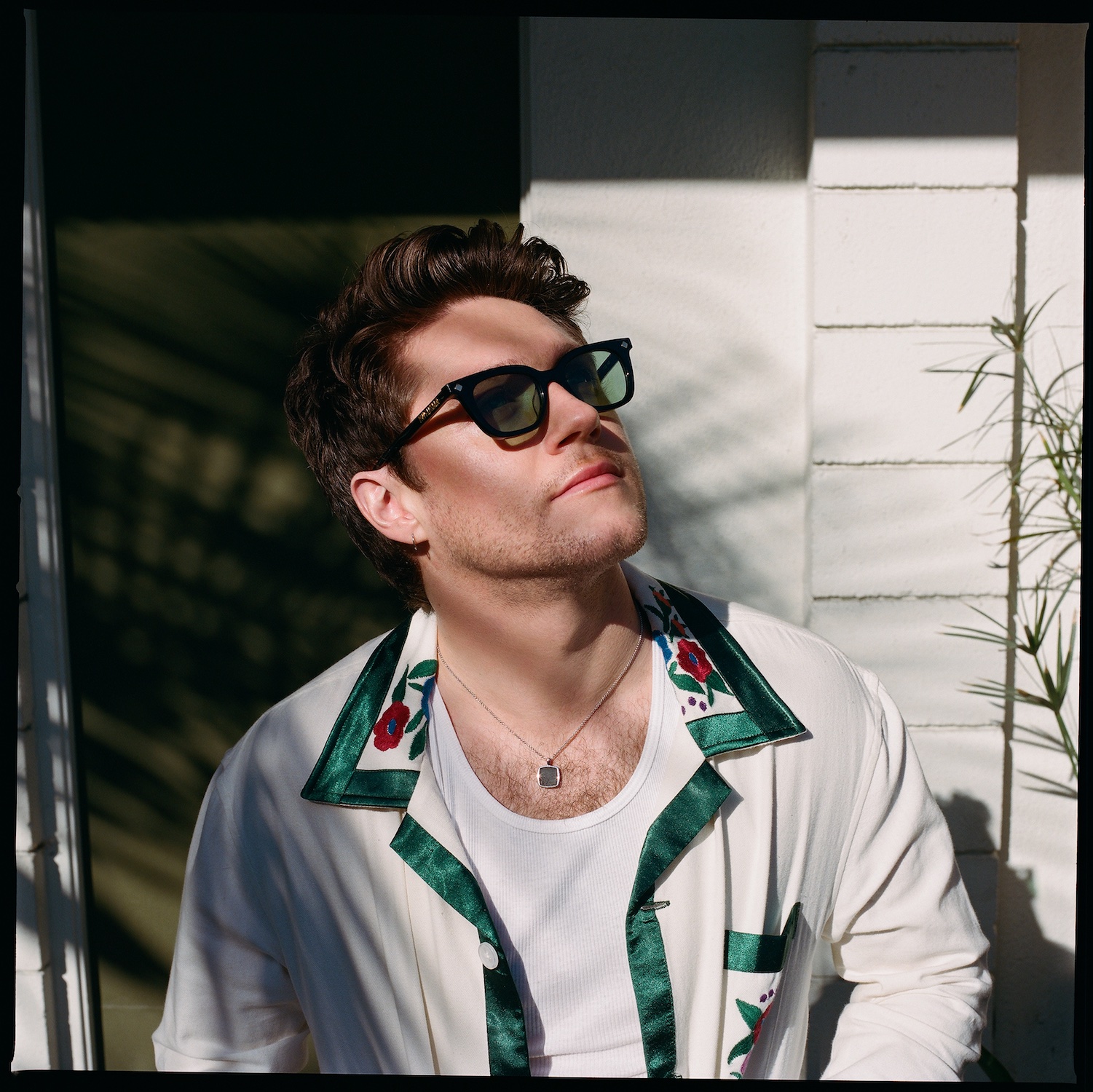
Niall Horan | Photographed by Zackery Michael, Styled by Cameron Quittner
VM: So “The Show” was the first song you wrote for the album?
NH: It was, yeah. It was like a 1 a.m. Instagram Live with my fans in the pandemic, because we weren’t going anywhere, you know. I wrote the first verse of the song, and then the whole album just made sense from that. It’s a hard one to describe, how it just came about.
VM: Sonically, then, how do you think you’ve evolved in the three years since Heartbreak Weather?
NH: I’ve really started to bring my influences—the stuff that I listen to—into play now. The stuff that I’m into from the ‘70s is coming into play a lot with all the big, bright background vocals that you hear throughout the album.
VM: Switching gears a bit, you obviously got your start on The X Factor. Now being a coach on The Voice, I’m curious if that aligns with what you thought it would be like to be a judge, back when you were a contestant on The X Factor?
NH: I was like a deer in the headlights, back in the day. There’s loads of famous people who have got your future in their hands, and I was still just taken aback by the fact that I was on a big TV show every Saturday night. I was just loving that we were having such a great time, so I didn’t really look at it from the other side. Now, knowing that I have people’s future in my hands is a scary prospect. I have to make really tough decisions about people leaving the competition, losing team members, stuff like that. I can now understand what it would have been like for those people who had to make decisions on my behalf and my future. Apart from that, it’s just an absolute blast. We spend all of our time laughing, on and off camera. The banter between all the coaches is so good.
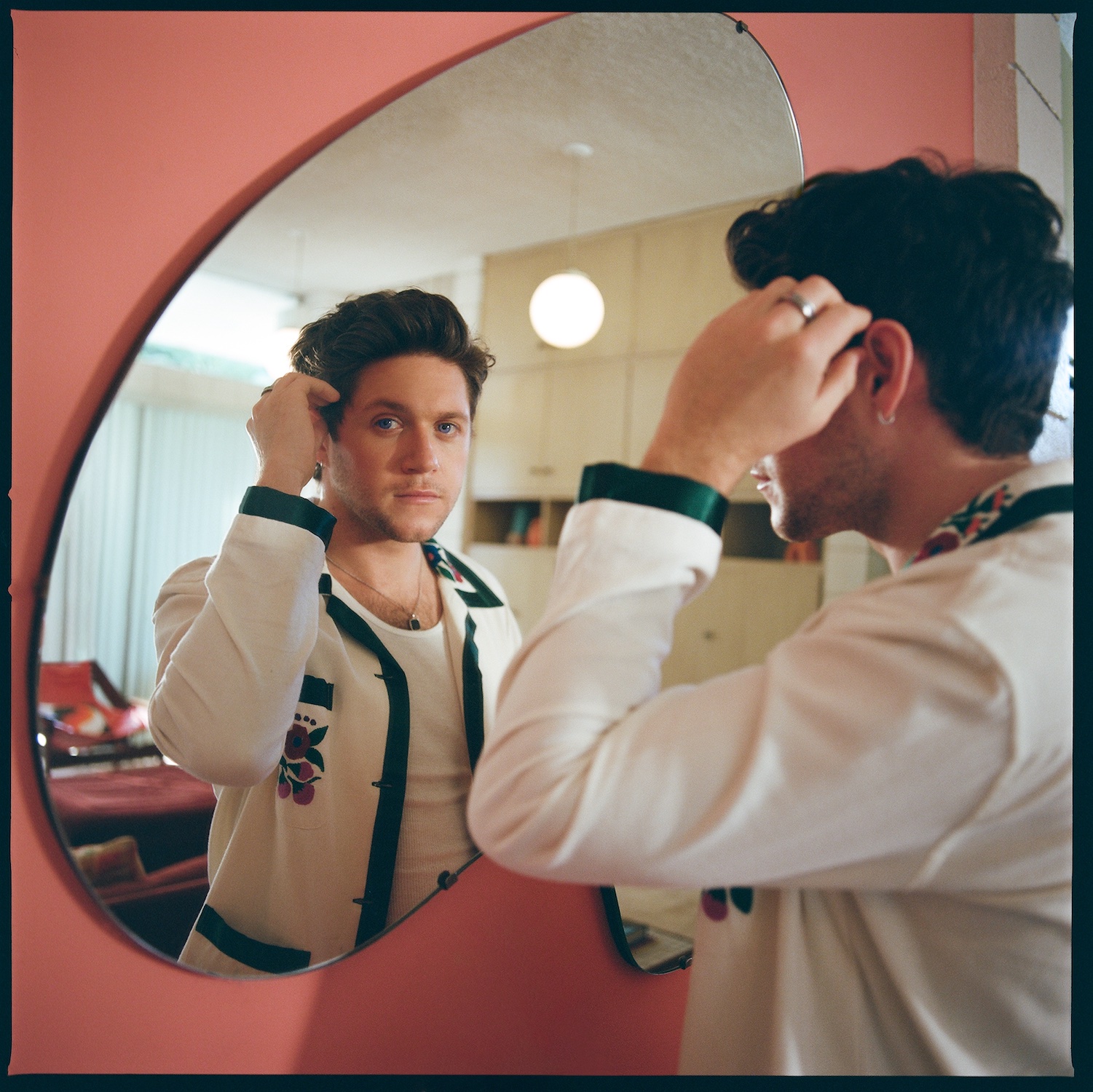
Niall Horan | Photographed by Zackery Michael, Styled by Cameron Quittner
VM: So, festival season is coming up, and you’re playing at quite a few. First of all, what are you most looking forward to with that, and second of all, do you think that playing for a festival audience is going to be different from a more traditional concert audience?
NH: I’m so excited for festivals—I’m a huge festival-goer. And I always get jealous when I’m watching the artists on stage, just thinking that I’d love to be up there looking at that sea of people. So, I’m looking forward to doing that. But I also see it as a challenge to try and get some new fans, because I’ve been that drunk guy walking around the field looking for the bar, and then walking past the stage and there’s someone up there playing and all of a sudden, I’m listening to their music online. I’ve done that so many times at festivals.
VM: You’ve got to get the people who are in the back getting food or something.
NH: Exactly. Hopefully, the guy going to the bar looking for a drink or whatever might stick around, then might listen to me online, and then might even buy my new record. You never know.
Be sure to pre-order Horan’s third album, ‘The Show’, here!
Discover More





